News & Media
Nuclear spectre remains as UN turns eighty
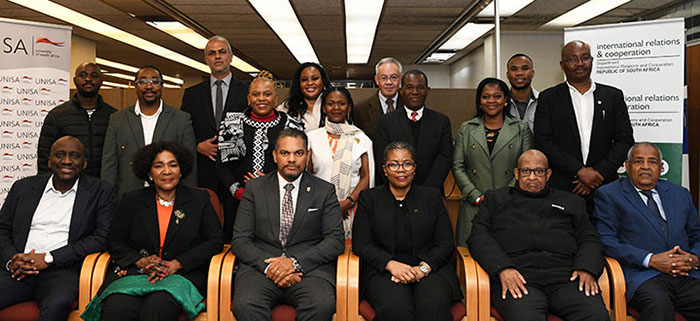
Attendees of the seminar comprising Unisa’s management, ambassadors, members of the diplomatic corps, and members of the Department of International Relations and Cooperation (DIRCO)
On 6 August 2025, the Department of International Relations and Cooperation (DIRCO), in partnership with Unisa, hosted a seminar that reflected on the establishment of the United Nations (UN) after World War II, the plight of the Hiroshima and Nagasaki victims and survivors, and nuclear disarmament. The seminar was themed The United Nations at 80: The Post-WWII Architecture and the Nuclear Non-Proliferation Treaty.
The UN is a global intergovernmental organisation established by the signing of the UN Charter on 26 June 1945 with the articulated mission of maintaining international peace and security, to develop friendly relations among states, to promote international cooperation, and to serve as a centre for harmonising the actions of states in achieving those goals.
Traversing alternative energy – the nuclear terrain
In her welcome remarks, Unisa Principal and Vice-Chancellor (VC), Prof Puleng LenkaBula, said that the seminar forms part of DIPLO Speak, a programme started in 2021 to garner intellectual insights into international relations and to provide a dialogue on complex, thought-provoking matters of international scale.
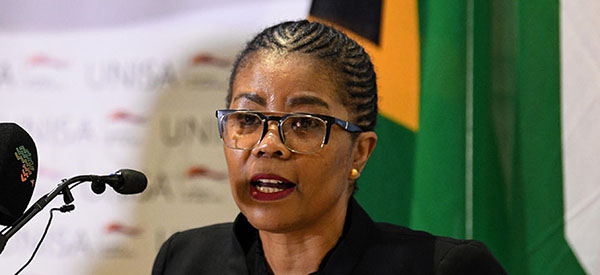
Unisa Principal and Vice-Chancellor, Prof Puleng LenkaBula
The VC stated that a discussion on nuclear energy will always remain a contested terrain, because, she said, "on the one hand, the challenges of nuclear are very clear while on the other, the need for energy in a transformational system in countries such as ours, becomes another question that we must interrogate".
Discussing at great length the catastrophic moments of the 1945 Hiroshima and Nagasaki bombings during World War II, the VC said that these atrocious actions stand as a testament to the morbid use of nuclear energy that destroyed livelihoods and the environment. "Two cities were wiped out, their population decimated, and their infrastructure destroyed with radioactive material," she added.
"It is, however," continued the VC, "important to note that nuclear energy has positive uses, including in the medical and energy production fields. In other words, it can be utilised for the good of humankind when used with the intention not to harm people and the environment."
Delving deeper, the VC highlighted other positive uses of nuclear energy, including medical treatment and research, climate change mitigation, and the generation of large amounts of electricity with minimal greenhouse gas emissions and lower carbon footprints. She emphasised that scientists, policy makers and advocacy groups are obligated to research further into these aspirations for our country, adding: "While we are currently enjoying a reprieve from load-shedding, we remain acutely aware that this comes at a high price for the economy, because a large amount of diesel is burned to keep our lights on".
Founding member of the International Atomic Energy Agency
The VC stated that South Africa joined the International Atomic Energy Agency as a founding member. The country later ceased nuclear weapons production and gained the unique position of being the only country that developed nuclear weapons and then voluntarily dismantled its entire nuclear programme, becoming a strong advocate for the Treaty on the Non-Proliferation of Nuclear Weapons (NPT).
Concluding, the VC stated that after the establishment of the UN, the communities of the world reflected on how to maintain peace and security. The UN’s General Assembly adopted a decision to make nuclear disarmament its living goal. She added: "It is a commitment that has resonated through decades of international diplomacy and remains a pivotal objective for global stability and peace".
A polarised world
Setting the scene, Dirk Kotzé, Professor of Political Sciences at Unisa, said that the formation of the UN introduced the notion of multilateralism and that of a global community after World War II. "This was the end of the European definition of the world and tradition in international relations," he added. "Additionally, it ushered in a new era of international diplomacy and formal rules of engagement, which, before, were dominated by informal secret alliances."
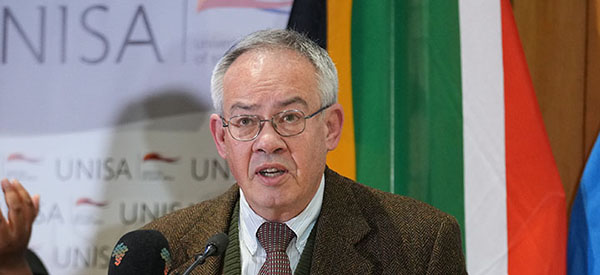
Dirk Kotzé, Professor of Political Sciences at Unisa
Continuing, Kotzé noted: "However, the end of World War II introduced the military dominance of the United States and the Cold War, which, in turn, led to the formation of two fixed bipolar military blocs: the North Atlantic Treaty Organisation (NATO) and the Warsaw Pact. This bipolar system underscored nuclear mutual deterrence. The irony is that a nuclear weapons threat created a period of world peace for more than 80 years."
Kotzé revealed the emergence of a third bloc: the Non-Alignment Movement, an international organisation of countries that are not aligned with or against any major power bloc, which redefined geopolitical relations through being on a different path of newly independent and decolonised states during the Cold War.
In conclusion, Kotzé stated that the formation of the United Nations has brought stability through its primary objectives, among them peacekeeping. "To a large extent," he said, "it has not been successful because the Permanent Five members of the United Nations Security Council have been unable to stabilise wars."
Born in the ruins of war
In his keynote address, Alvin Botes, Deputy Minister of International Relations and Cooperation, said that the UN was born in the ruins of war, and therefore declared the maintenance of peace and security as its central and key mandate, with, at its core, the elimination of nuclear weapons. "Eighty years later, the elimination of nuclear weapons has not taken place," he commented.
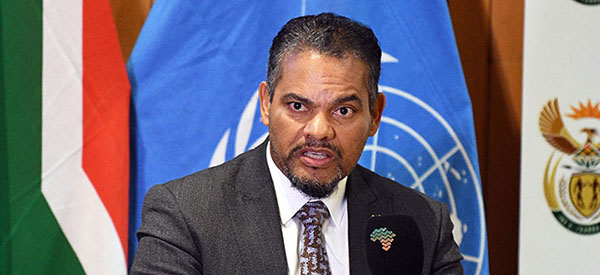
Keynote speaker, Alvin Botes, Deputy Minister of International Relations and Cooperation
Botes noted that although 191 member states of the United Nations have joined the NPT, India, Pakistan and Israel have never signed the treaty. "This," he said, "remains a significant challenge to the goal of mutual cooperation and universal nuclear non-proliferation disarmament. Therefore, South Africa must continue to raise its voice in the call for nuclear disarmament."
The conversations continued during a panel discussion with featured Mutsa Mugangavari, Deputy Head of Delegation, International Committee of the Red Cross (ICRC) Southern Africa; Prof Angelo Dube, Director of the School of Law, Unisa; Noxolo Kunene, Senior Manager: Licensing and Safety at South African Nuclear Energy Corporation (NECSA) and President of Women in Nuclear South Africa (WINSA); and Joseph Dube, representing the Institute of Disarmament and Arms Control.
* By Godfrey Madibane, Acting Journalist, Department of Institutional Advancement
** Photography by Unisa Multimedia Centre
Publish date: 2025-08-11 00:00:00.0


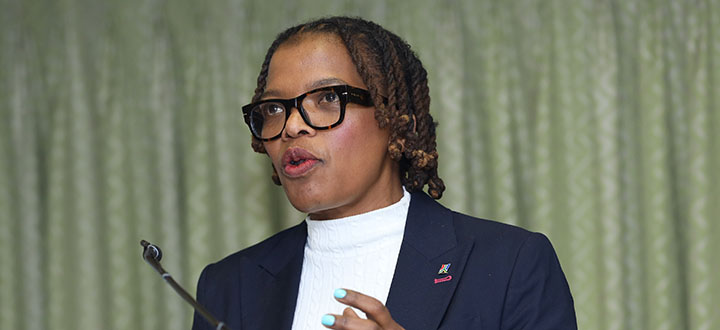 Unisa seminar explores the role of women in diplomacy
Unisa seminar explores the role of women in diplomacy
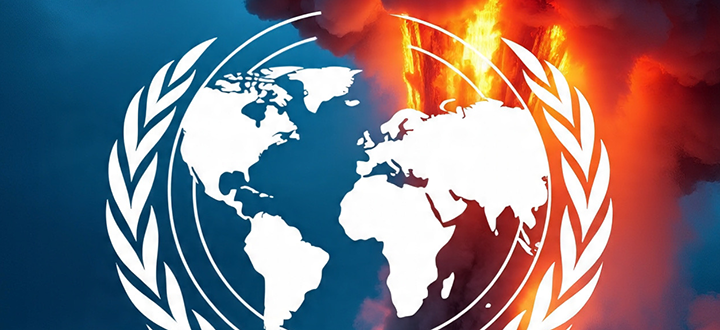 Nuclear spectre remains as UN turns eighty
Nuclear spectre remains as UN turns eighty
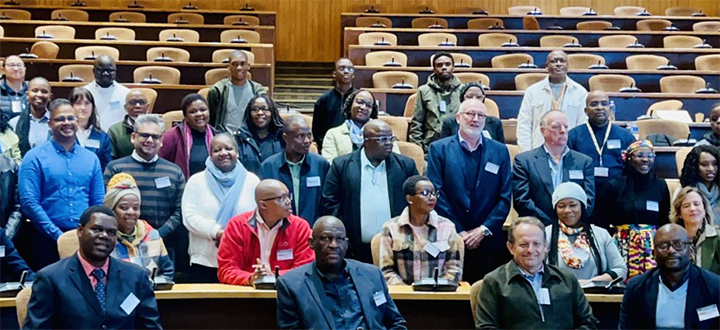 Unisa hosts major Indian Ocean research gathering
Unisa hosts major Indian Ocean research gathering
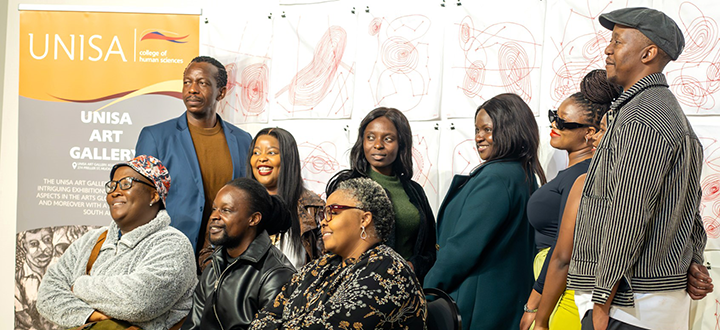 Unisa Art Gallery showcases transformative exhibition
Unisa Art Gallery showcases transformative exhibition
 Stormy weather: The automotive industry in flux
Stormy weather: The automotive industry in flux